- Home
- Thomas H. Cook
Night Secrets Page 11
Night Secrets Read online
Page 11
Frank shook his head. “No, I can’t,” he said.
Farouk looked at him, surprised.
“The day case,” Frank reminded him.
“Ah yes, the day case,” Farouk said. “That which feeds the body and leaves the soul to starve.”
Frank waited for the buzzer to ring, then stepped into the office’s small reception area. The woman behind the desk nodded to him politely as he walked over to her.
“May I help you, sir?” she asked.
“I’d like to see Dr. Powers,” Frank told her. He pulled out one of a collection of cards which Farouk had assembled for him over the past few months. This one identified him as a professional tax consultant, and for a moment he tried to assume the manner of one: cool, professional, a man who could spot vultures from a great distance.
“Do you have an appointment?” the woman asked, after she’d glanced at the card.
“No, I don’t,” Frank said politely. “That’s why I came so early. I thought that if the doctor had a moment, he might be willing to see me. I think he’d be interested in what I have to say.”
“And you’re a tax consultant, is that right?” the woman asked.
“Yes.”
She didn’t seem to doubt it, and Frank could feel himself assuming the role a bit more casually. Still, he could sense the overall stiffness of his manner, and for a moment he envied the way Farouk could pull it off, the way he could almost become the man he pretended to be.
“I know it’s early,” he said. “But I think Dr. Powers would profit by seeing me.”
“I understand,” the woman said. “Just a moment.” She disappeared into the back of the office, and while she was gone, Frank dropped the tax consultant pose and looked the place over the way he always did, searching for that odd detail that would bring everything else into focus. He noted the small tables and chairs which dotted the waiting room, the spray of flowers in the corner, the overall elegance of the place, its antiseptic calm.
He drew in a deep, faintly weary breath and sat down in one of the small chairs near the front desk. His eyes ached slightly, and he rubbed them gently. They felt large and faintly sore, as if swollen with his long sleeplessness. He closed them for a moment, then opened them again and scanned the room a second time.
The walls were pale blue, and an assortment of framed Broadway posters hung from them, old broadsides advertising Oklahoma!, Mame, The Sound of Music. Aside from them, there was only one other picture, a very ornately drawn portrait of a woman whose eyes seemed to watch the world from behind a pale, gossamer screen. The eyes themselves were large and blue, and something about them disturbed him. For a time, he couldn’t quite figure out what it was. Then, suddenly, he knew. Their color was the exact shade of the walls. Frank realized that either the walls or the eyes had been painted to match the other’s color.
He was still looking at the eyes when the receptionist returned.
“Dr. Powers will see you now, Mr. Clemons,” she said. “But it’ll have to be brief.”
“Thank you.”
“Just follow me, please.”
She led him down a short corridor, then into the doctor’s consulting room. Powers sat behind a large glass-topped desk, his back to the window. He rose immediately. “Good morning, Mr. Clemons,” he said. He smiled brightly and offered his hand.
It was a fat little hand, very pink and pudgy, but Frank pumped it enthusiastically, as he thought a tax consultant would.
“Good morning, Dr. Powers,” he said.
“Please, sit down,” Powers told him. The smile stayed on his face, as if someone had pasted it there because without it there would have been no face at all.
Frank took a seat in front of Powers’s desk. He crossed his legs primly, like he’d seen men do in ads for expensive suits, and folded his hands in his lap. “Thanks for seeing me without an appointment,” he said.
“Happy to do it,” Powers said. “Would you like some coffee?”
“No, thanks.”
The smile flexed a little, as if Powers were testing his lips for longer service later on. “So, tax consultancy,” he said cheerfully. “Tax avoidance, not evasion, I hope.”
He was a large man, but the longer Frank observed him, the more light and buoyant he seemed. He looked swollen and overweight, but like a beachball—puffed out, yet empty.
“Like everyone else, I’m always interested in saving money,” he said. “So, what exactly do you do?”
Frank brought himself to attention. “I provide advice and assistance, particularly to people in private occupations.” It sounded exactly like something Farouk would have come up with, and he felt vaguely pleased by it. “Sometimes in difficult matters,” he added without elaborating.
“Mostly doctors?”
“Quite a few doctors.”
“So you know the particular kinds of expenses we have?”
“Yes,” Frank said. Then he guessed. “Transporting specimens, for example.”
“No, I use a local lab, Pentatex, over on Second Avenue,” Powers said. “They’re very good.”
“Yes, they are,” Frank said authoritatively. “You send all your lab work from this office?”
Powers looked at him quizzically.
“I mean, you have only one office?” Frank explained.
“Yes.”
“You don’t work out of your home?”
“No.”
“Other deductions apply for work out of the home,” Frank told him, in a voice that sounded as if he actually knew what he was talking about.
“Well, I’m afraid they wouldn’t apply to me,” Powers said.
“So you use this office exclusively?”
“Yes.”
“And a hospital, of course.”
“Hospital?”
“Well, there are always certain costs which are involved in hospital affiliations,” Frank added.
Powers said nothing.
Frank smiled disarmingly. “Which hospital do you work with?”
Powers hesitated for a moment, then answered. “Fifth Avenue General.”
Frank nodded appreciatively. “That’s a fine hospital,” he said.
“Yes, it is,” Powers said. “Now, about your service, advice you said?”
“Well, the new tax code is very complex,” Frank told him. “There are a great many deductions that aren’t as obvious as they should be. And the guidelines aren’t as precise as people think.”
“Which means?”
“That you have to know what you’re doing,” Frank said. “And that many people are too busy to do the kind of study they need to use the new code to their advantage.”
“You mean, even skilled accountants?”
“Even very skilled accountants.”
“But you’ve studied it all very well, I suppose?”
Frank nodded. “Particularly for people who have a net income of more than half a million dollars.”
Powers smiled proudly. “Like me?”
Frank nodded. It had been a good guess. “Have you practiced medicine in New York State for a long time?” he asked.
“Only a few years.”
“Before that?”
“Pennsylvania,” Powers said.
“Is that where you went to school?”
“No,” Powers said. “Boston.”
“Harvard?”
Powers shook his head, shifting the smile left and right. “I only wish. With a Harvard medical degree, I’d have probably gotten to Fifth Avenue a lot faster.” He cleared his throat softly. “No, I went to Tufts. I graduated in the class of ’68.”
Frank smiled amiably. “Did you like Boston?”
“It was all right,” Powers said. “But I wanted to get back to New York.”
“So you’ve lived here before?” Frank said, trying for a tone of small talk to hide the needle of interrogation.
“Oh, yes,” Powers said. “When I was a wild young thing. You know, like so many others, trying to make it
in the big city, make your mark.”
“But you left,” Frank said.
“Yes, and most people don’t come back once they do that,” Powers said. “But not me. As you can see, I’ve returned.”
Frank decided it was time to throw him a bone. “And very successfully,” he said.
“Yes,” Powers said. “That was also part of the dream. To return to New York on my own terms.” The smile stretched a little. “I never got it out of my blood, I guess,” he added, “the city.”
“Well, it looks like things have gone well for you.”
Powers cocked his head slightly. “You know, you don’t exactly sound like a native yourself.”
“No, I’m not.”
“Southern accent, of course,” Powers said thoughtfully. “But not Virginia, and not Mississippi.” He laughed. “I’m quite good at doing accents. It was one of my strong suits.” He glanced toward the window, the sweep of Manhattan. “Anyway, I had to get back to New York,” he said. “I love the atmosphere. The place, you know, the excitement. It’s my kind of town.”
Frank grinned back at him. “Absolutely.”
Powers looked pleased. “Well, I’d like to talk to you about this again,” he said. “Shall we set up an appointment?”
Frank took out his notebook, flipped to a blank page and pretended to study it. “How about Saturday?”
“That sounds good,” Powers told him. “Providing it can be early in the evening.”
Frank glanced back at the empty page. “Well, I have another appointment at four that afternoon, but I should be free by six.”
“Six would be fine,” Powers said. He stood up. “Do you know Broadway Lights, the restaurant?” Frank nodded. “Shall we meet there?”
“Good,” Frank said. He offered his hand and Powers shook it pleasantly, then escorted him back to the outer office.
“Well, thanks for coming by,” Powers said.
“Thanks for seeing me on such short notice,” Frank told him. He glanced about the office again. “The place looks nice.”
“Broadway,” Powers said dreamily as his eyes drifted from one poster to the next. “It’s so romantic, don’t you think?”
Frank nodded.
“I just love it,” Powers added rapturously, as if it were a holy word. “The Great White Way.”
Frank smiled pleasantly. The Boulevard of Broken Dreams, he thought.
It was exactly the sort of thing he knew he’d do badly, and so after leaving Dr. Powers’s office, Frank walked to the nearest telephone and called Farouk.
“Yes?” Farouk said, using the only word he ever used to answer the phone.
“It’s Frank, I have something for you.”
“About the Puri Dai?” Farouk asked quickly. “I thought that you couldn’t …”
“No, it’s not about her,” Frank told him. “It has to do with the day case.”
“Ah, yes,” Farouk said.
“I haven’t mentioned much about it.”
“It has not been worthy.”
“Well, the thing is, it’s taken a turn you can help me with.”
Farouk gave a short laugh. “So now it involves a little paperwork, yes?”
“That’s right.”
“Where shall I meet you?”
“Well, as it turns out, I’m not too far from the library.”
“The one on Fifth Avenue?”
“Yeah.”
“I’ll be there in twenty minutes,” Farouk said.
* * *
He made it in only fifteen minutes, walking briskly up the stairs, then groaning slightly as he lowered himself onto the cement steps beside Frank.
“The summer, it is coming soon,” he said. He pulled a white handkerchief from his jacket pocket and wiped his great bald head. “So, the day case.”
Frank nodded.
Farouk returned the handkerchief to his pocket. “How may I be of assistance?”
“The whole thing revolves around a woman,” Frank began. “The husband noticed that his wife has been acting a little strangely, and that some of her jewelry has been disappearing.”
Farouk nodded. “I see.”
“The wife has been hocking jewelry at that little place near us on Eighth Avenue,” Frank added.
“You spoke to Lazlo?”
“Who?”
“The old man who runs the shop,” Farouk said. “Lazlo Pipkin.”
“Yeah, I talked to him.”
“From him, you get the truth.”
“That’s the way it sounded to me.”
Farouk’s eyes drifted toward the street, following a tall woman as she made her way northward up Fifth Avenue. “So you want to find out about the jewelry?”
“The husband’s more concerned about the woman than the jewelry.”
Farouk continued to watch the woman. “Are you certain of this?”
“I think so.”
Frank’s answer seemed to satisfy him. “All right,” he said. “And what have you discovered about the woman?”
“I’ve followed her for a couple of days,” Frank said. He took out his notebook. “On Monday she went to the Pierre Hotel. She belongs to a group that wants to save the rain forest. She stayed there a couple of hours, then took a cab to see a gynecologist named Kevin Powers. She got out at his house, or at least I guess it’s his house. Anyway, it’s in the Village.”
“And the address?”
“One-twenty-four West Twelfth Street.”
Farouk nodded.
Frank looked at him curiously. “Don’t you ever take anything down?”
“Everything,” Farouk said. “But not on paper.”
Frank shook his head, then looked back down at his notebook. “The next day she went to the Dakota and saw a man named Preston R. Devine. He runs some sort of import business. Allied Global-East. The offices are in the diamond district. On West Forty-seventh Street. She goes there fairly often, and she uses a false name at the door.”
Farouk looked at Frank knowingly. “Then it is perhaps an affair of the heart, yes?”
“It’s possible,” Frank said. “They never leave the man’s apartment.”
Farouk smiled sadly. “Betrayal, I am afraid, is often a matter of small rooms and drawn shades.” He turned to Frank. “How long was she with this man?”
“Couple of hours,” Frank told him. “She uses the name Driscoll when she sees him. And after she left him, she took a walk in the park. But there was a reason for that. I think she used it for a drop-off.”
Suddenly Farouk seemed slightly more interested. “Drop off?”
“She left her purse near the Alice in Wonderland statue.”
“For whom did she do this?”
“I don’t know.”
Farouk looked at him reproachfully.
“By the time I got back to the statute, the purse was gone,” Frank explained.
“I see,” Farouk said. “Anything more?”
“This morning she’s with her husband,” Frank told him. “But I’ll be trailing her this afternoon. He said they’d be back home by around noon.”
Farouk nodded.
“So since she was covered for the morning,” Frank went on, “I decided to check up on the doctor.”
Farouk leaned forward, his eyes rising up the long gray line of the business tower which rose across the street. “And learned what?”
“Nothing,” Frank told him.
Farouk drew himself back slightly. “Which is why you are in need of my assistance,” he said with a wry smile.
“That’s right,” Frank said.
“Good,” Farouk said. “Now, tell me what you know of this person?”
Frank turned the page of his notebook. “His name is Kevin A. Powers. He says he went to Tufts for his medical degree. He graduated in 1968.”
Farouk nodded. “Good. Anything else?”
“He’s associated with Fifth Avenue General,” Frank added. “And he gets his lab work done at a place called Pentatex.”
He closed his notebook and returned it to his pocket. “That’s all I’ve got.”
Farouk looked satisfied. “It is enough,” he said.
“Well, what I’d like for you to …”
Farouk raised his hand to silence him. “If what I bring you is of no assistance, then you owe me nothing.” He pulled himself to his feet. “I will see you tonight.”
“Do you want to meet at my office?”
“That is fine.”
“When?”
Farouk shrugged. “It is best for you to decide.”
“Well, Phillips usually comes home at around six,” Frank said. “I should be back on Forty-ninth Street not long after that. We can go over what you’ve found out.”
Farouk nodded. “Yes,” he said. “I should have discovered certain things by then.” He smiled quietly. “I shall not take up too much of your time.”
Frank shrugged. “Take as long as you need.”
Farouk shook his head determinedly. “No,” he said. “By then it will be late.”
“Why would that matter?”
“For the night case,” Farouk said, as if reminding Frank of some ancient and incontestable duty which could not be denied.
Frank continued to sit on the steps of the library for a time after Farouk had gone inside. It was almost noon, and the lunchtime crowds swarmed all around him. At the bottom of the steps, a skinny man in a black leotard had tied himself up in loops of chains and was busily entertaining the people with his escape. They applauded each time another length of chain fell free, and after a while, Frank found their celebration of such meaningless liberation oddly discomforting and walked away, heading north up Fifth Avenue until he reached Sixty-fourth Street.
From the corner, he could see the Phillips brownstone, and so he remained at some distance, trying to vary his position day to day in the hope of keeping his cover for as long as he could. Across the avenue, the borders of Central Park had begun to take on the faintly greenish tone of early spring, and as he looked out into it, his mind shifted back to the light-blue walls in Powers’ s reception area, and then the portrait that hung from one of them, the matching color in the woman’s strangely distant eyes. After a while, he could feel himself becoming lost in such pointless concentration, and so he blinked hard and drew his eyes away from the park, his mind away from the portrait, and fixed them on the brownstone which stood near the middle of the block, perhaps a hundred feet away.

 The Interrogation
The Interrogation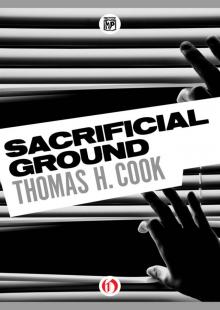 Sacrificial Ground
Sacrificial Ground The Fate of Katherine Carr
The Fate of Katherine Carr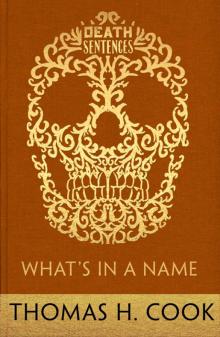 What's In A Name
What's In A Name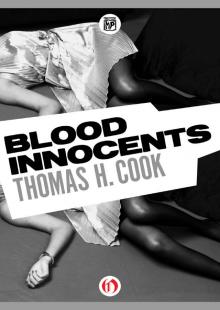 Blood Innocents
Blood Innocents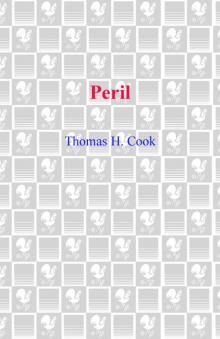 Peril
Peril A Dancer In the Dust
A Dancer In the Dust Breakheart Hill
Breakheart Hill The Chatham School Affair
The Chatham School Affair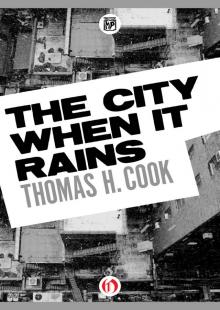 The City When It Rains
The City When It Rains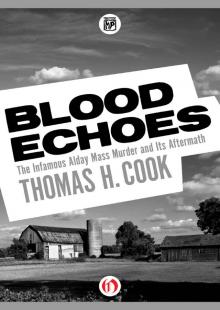 Blood Echoes
Blood Echoes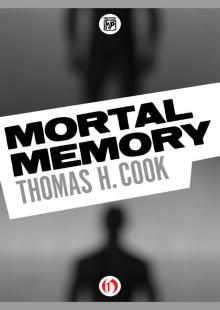 Mortal Memory
Mortal Memory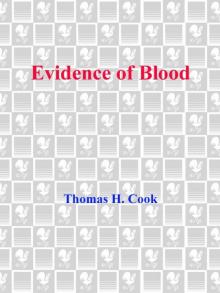 Evidence of Blood
Evidence of Blood Into the Web
Into the Web The Crime of Julian Wells
The Crime of Julian Wells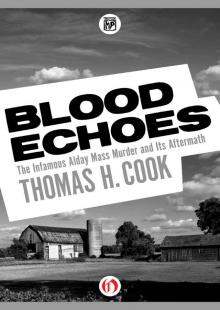 Blood Echoes: The Infamous Alday Mass Murder and Its Aftermath
Blood Echoes: The Infamous Alday Mass Murder and Its Aftermath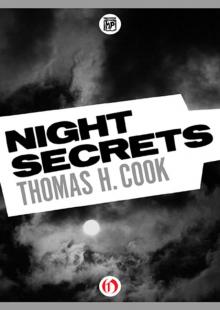 Night Secrets
Night Secrets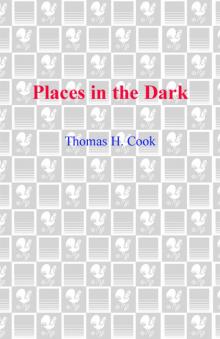 Places in the Dark
Places in the Dark The Orchids
The Orchids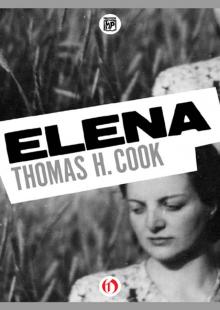 Elena
Elena Streets of Fire
Streets of Fire Instruments of Night
Instruments of Night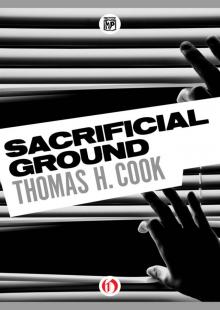 Sacrificial Ground fc-1
Sacrificial Ground fc-1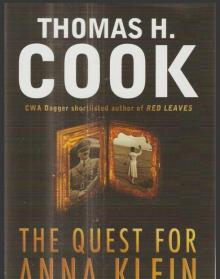 The Quest for Anna Klein
The Quest for Anna Klein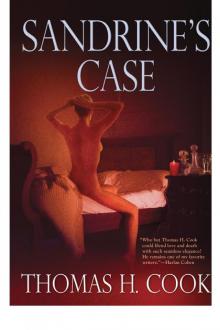 Sandrine's Case
Sandrine's Case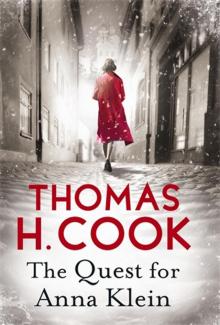 Quest for Anna Klein, The
Quest for Anna Klein, The Fatherhood
Fatherhood Flesh and Blood
Flesh and Blood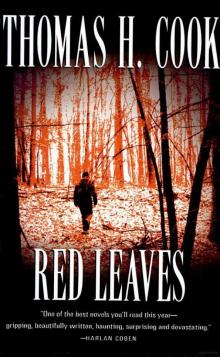 Red Leaves
Red Leaves